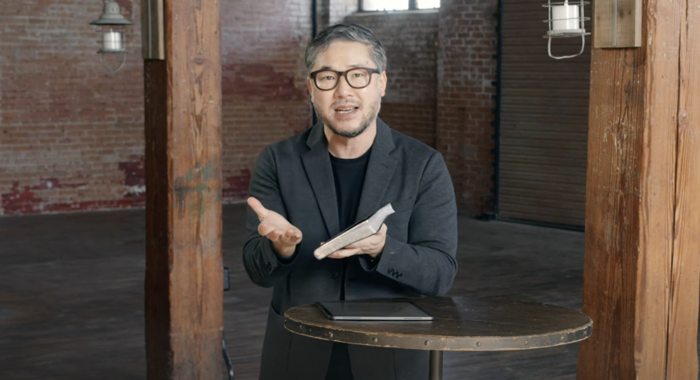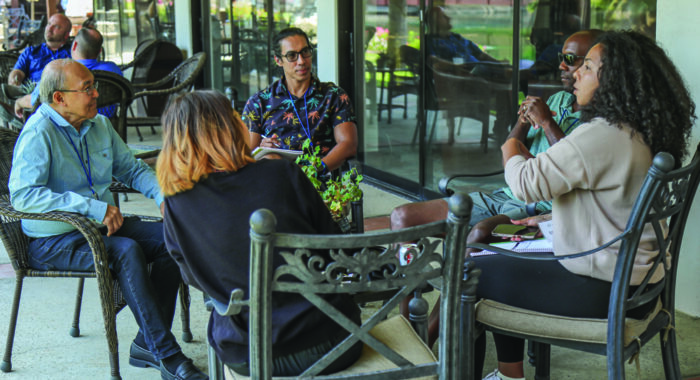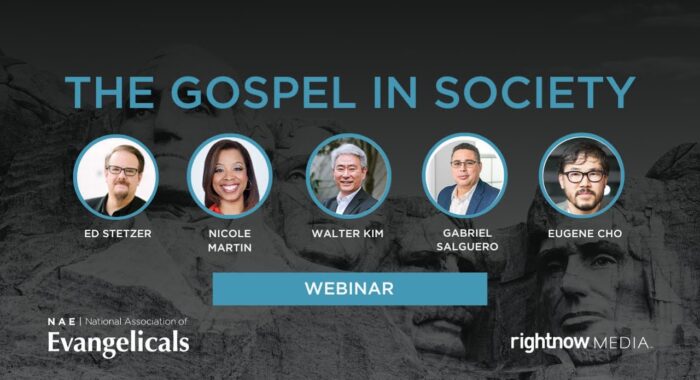It was my first major crisis as a newly graduated 24-year old pastor. And, it hit on a Saturday night.
A group from the church went to a political gathering with an out-of-town speaker whom many would call extremist. They loved what he said and invited him to speak at our church the next morning in the sanctuary during the Sunday School hour before the morning service. By the time I found out, these church folks had phoned all of the Sunday School teachers to tell them that the next morning’s classes were cancelled and to bring their students to hear the guest politician.
I was sick to my stomach and scared. It just seemed flat-out wrong to cancel teaching the Bible to promote a political ideology. But, what’s a young pastor to do? I prayed with a pounding heart. The Lord prompted me to call the chairman of the Christian Education Committee and ask for his advice. He was a retired Air Force officer who had commanded a large U.S. base in Vietnam. When I told him what happened, he said, “Don’t worry about it, I’ll take care of it.” I don’t know exactly what he did, but Sunday School went on as usual the next day and there was no political meeting or out-of-town speaker. Every young pastor should have a ranking, battle-experienced, military veteran on his side!
As a citizen I’ve had a lifelong interest in politics. As a pastor I’ve tried to keep politics out of my teaching and leadership. In churches with passionate people it can be hard to keep everybody happy.
We see many approaches to politics and religion. On one end, some advocate for complete takeover of the country in the name of Jesus Christ and the establishment of a theocracy. At the other end, some advocate for complete withdrawal from government and politics either out of trust in God or disgust with sinners. Most of us fall somewhere in between. We want our nation to be blessed by God. We want to live by the best of biblical standards. But we know we can’t make this happen with political power in a sinful world. So, we do the best we can.
Here are some practical guidelines for consideration as we seek to live out our faith in 21st century America:
Bible First
As evangelical Christians we have a very high commitment to the Bible as our source for faith and practice. We believe the words of 2 Timothy 3:16-17 that “All Scripture is God-breathed and is useful for teaching, rebuking, correcting and training in righteousness, so that the man of God may be thoroughly equipped for every good work.” The way to be equipped for every good work in politics is to begin with the Bible.
For me, that means that teaching and learning the Bible are the highest priorities in the church. I have great confidence in the transforming truth of the Bible. It’s not that we don’t talk about politics but we start with the Bible.
Sadly, we are pressured to put politics first. Sometimes I hear Christians passionately advocate for a political policy and never mention the Bible. Or, if they do mention the Bible, it is quoting a verse that seems to strengthen their political argument. In reality, we talk politics just like those who don’t study the Bible and don’t believe in Jesus.
Take immigration reform as an example. Just about everyone agrees that we have a broken immigration system in America. Strong opinions are voiced with quotes from political platforms, radio talk shows, and internet websites. But, what does the Bible say? The Hebrew word “ger” appears 92 times in the Bible describing how to treat those described as aliens, immigrants, and strangers in the land. The Bible is loaded with stories of immigrants including Abraham, Jacob, Joseph, Ruth, Daniel and Jesus. If the Bible is first, then our beliefs should start with what the Bible says. How about thoroughly discussing what the Word of God says about immigrants and immigration before we say anything about what politicians think?
Principles from the Church; Practices as Citizens
In first century Israel people held differing views about paying taxes. Some thought it was required because believers are supposed to obey the law; some thought it was forbidden because it aided the heathen enemy. Some Pharisees hurled a “gotcha question” (trouble no matter which way the question is answered) at Jesus:
Then the Pharisees went out and laid plans to trap him in his words. They sent their disciples to him along with the Herodians. “Teacher,” they said, “we know you are a man of integrity and that you teach the way of God in accordance with the truth. You aren’t swayed by men, because you pay no attention to who they are. Tell us then, what is your opinion? Is it right to pay taxes to Caesar or not?” But Jesus, knowing their evil intent, said, “You hypocrites, why are you trying to trap me? Show me the coin used for paying the tax.” They brought him a denarius, and he asked them, “Whose portrait is this? And whose inscription?” “Caesar’s,” they replied. Then he said to them, “Give to Caesar what is Caesar’s, and to God what is God’s.” (Matthew 22:15-21)
The church has a responsibility to teach Jesus’ principles of giving ourselves (created in God’s image) to God and giving our coins (minted in Caesar’s image) to the government. Of course, Caesar is dead, the Roman Empire is long gone, and we live in America where we pay with cash, checks, and credit cards. As the principles of scripture are taught, we equip Christians to live out the biblical standards in constantly changing politics and governments.
But, what if different Christians decide on different ways to live out biblical principles and end up voting for different political parties or on the opposite sides of political issues? This becomes a test of our conviction about the priesthood of believers (I Peter 2:9). We Christians have the Holy Spirit to guide us to the practice of biblical principles. We have a biblical responsibility to respect the different political practices of other believers.
Love Our Neighbors and Beware of Bullies
What if we are convinced that others’ politics are really wrong? Again, the Bible gives us guidance. We are to love God and love our neighbors. Jesus said in Mark 12:29-31 that “There is no commandment greater than these.”
The Apostle Paul told us, “If it is possible, as far as it depends on you, live at peace with everyone” (Romans 12:18).
What about political leaders we really dislike, the kind of person who may be bad for the country? The Apostle Peter went further than Paul when he wrote:
Submit yourselves for the Lord’s sake to every authority instituted among men: whether to the king, as the supreme authority, or to governors, who are sent by him to punish those who do wrong and to commend those who do right. For it is God’s will that by doing good you should silence the ignorant talk of foolish men. Live as free men, but do not use your freedom as a cover-up for evil; live as servants of God. Show proper respect to everyone: Love the brotherhood of believers, fear God, honor the king. (I Peter 2:13-17)
Whenever tempted to escape these biblical commands over some politician we don’t like, remember that these apostles were talking about the despot Nero who severely persecuted Christians, crucified Peter upside down, and had Paul beheaded.
Love others but also beware of political bullies. These are the people who cajole, threaten, and pressure to make you believe what they want you to believe. They may put flyers on your windshield, ads on your television, voter guides in your mailbox, robo calls on your answering machine, lies on your internet, and deception in your favorite magazines. Watch out for those who want to make up your mind for you. Remember that these bullies may start with a smile but can be mean and manipulative on the inside. Let the Holy Spirit be your guide and not some political pressure person.
Trust God for the Future
Someone once asked me to summarize the New Testament book of Revelation in a single sentence. I answered, “God wins!”
Revelation is full of politics. There is some scary stuff. The devil puts up a strong fight. Some may wonder if Satan will triumph. Then God brings it all together. God uses the worst to accomplish the best. God wins!
We have a clear responsibility to be the agents of Christ and his kingdom here on earth. Our goal is to answer Jesus’ prayer that his will be done on earth as it is in heaven. May our political engagement be as Christians, not as partisans and may we never forget that God always wins.
This article originally appeared in Missionary Church Today, Fall 2012.
Leith Anderson is president emeritus of the National Association of Evangelicals and pastor emeritus of Wooddale Church in Eden Prairie, Minnesota. He served as NAE president from 2007–2019, after twice serving as interim president. He served as senior pastor of Wooddale Church for 35 years before retiring in 2011. He has been published in many periodicals and has written over 20 books. Anderson has a Doctor of Ministry degree from Fuller Theological Seminary, and is a graduate of Moody Bible Institute, Bradley University and Denver Seminary.




 View All Articles
View All Articles 





























